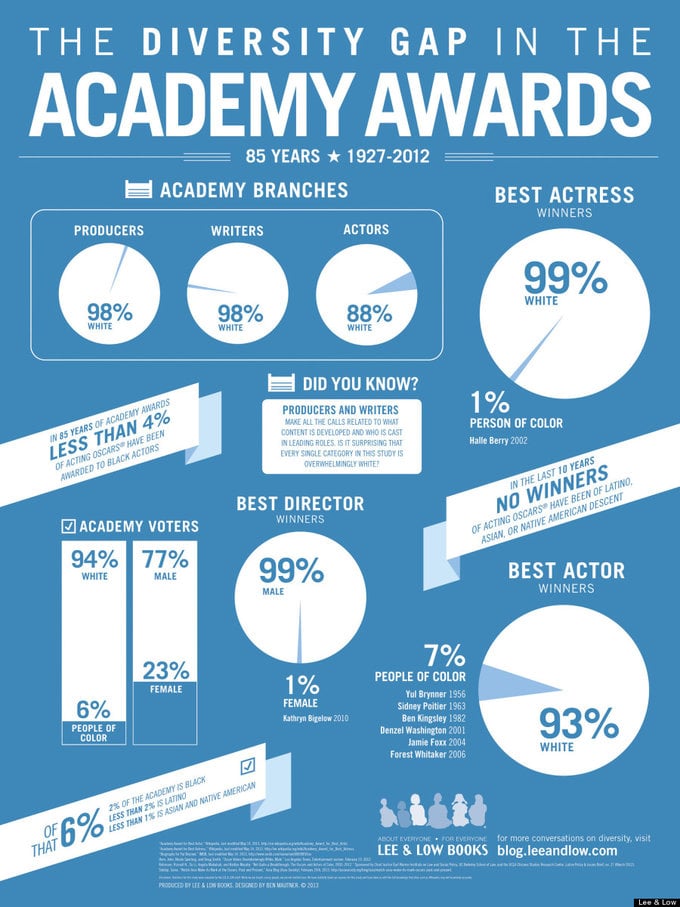
This year’s Oscar nominations have been announced, and it’s a manslide!
A White Manslide to be more precise. And while this is great news for all those merry white peens out there, there is some serious eyebrow raising going on in Hollywood and beyond, as critics come to terms with some of the biggest Oscar upsets and snubs in years.
For just the second time since the turn of the century, EVERY SINGLE nominee in the Academy’s four acting categories is white.
Critic favourite, David Oyelowo, who starred in the Martin Luther King biopic, Selma, was snubbed, as was Selma’s director, Ava Duvernay.
Duvernay – who was tipped to be the first black woman EVER to be nominated for Best Director at the Oscars – was drowned out in an all-white category.
And other women didn’t fare a whole lot better. In fact, every single nominated director is male. Every single nominated screenwriter is male. Every single nominated cinematographer is male. All the sound editors are male. All the composers are male. And all six nominated editors would have been male were it not for one pesky woman who somehow snuck in there, destroying the whole darn festival-de-testicle. Bitch.
RELATED: The 6 most impossibly awkward moments from the Oscars.
And it’s not just the production side of things that is dominated by the fellas.
As London-based, Senior Lecturer in Film William Brown notes, film remains a space where men tell men’s stories, in a male way for male audiences.

Top Comments
I'm surprised anybody is surprised by any of these statistics. When did straight white men stop ruling the world? Hasn't happened yet.
Straight white men may rule your world thanks to sites like this. It must be true, it happened in Hollywood.
China, Nigeria, Brazil, Russia and India which don't fit your stereotype, are actually in the majority statistically.
You want quotas then? Like the Soviet Union?